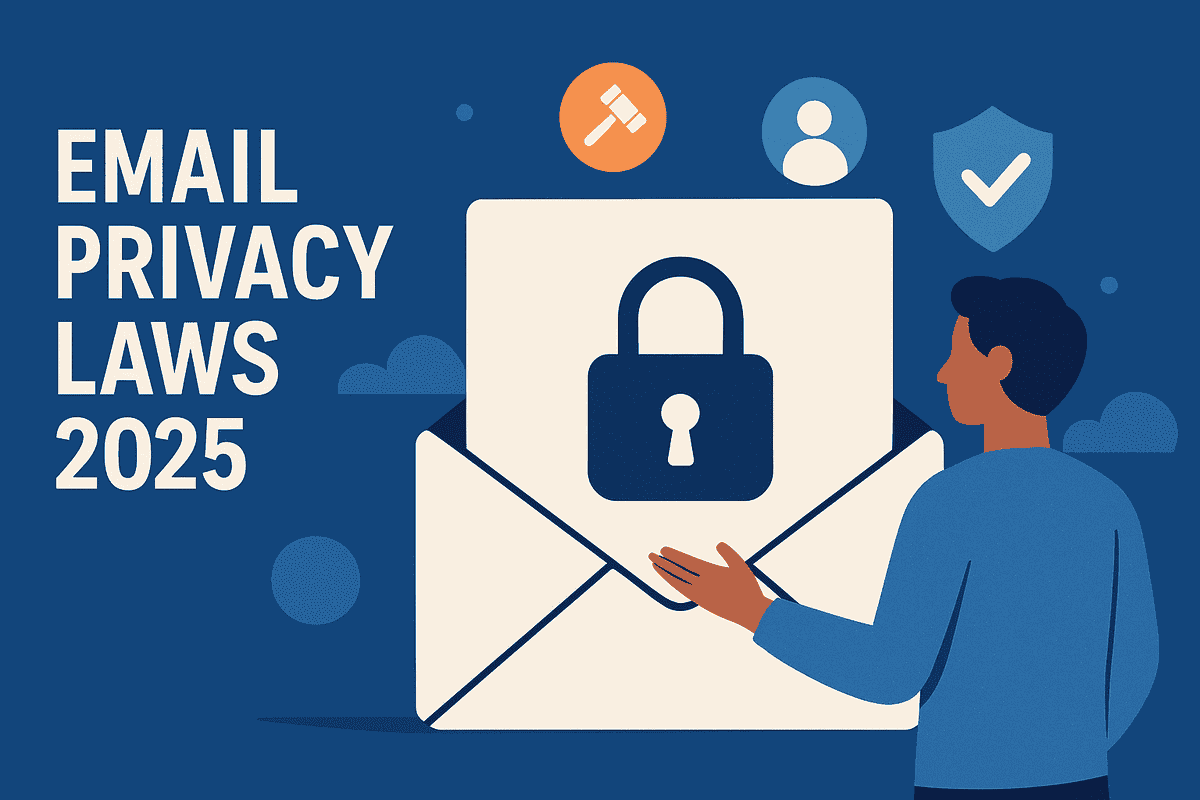Is Your Email Strategy Prepared for the 2025 Privacy Shift?
Picture spending months creating the ultimate email campaign—only to have it blocked, marked as spam, or worse, fined as a result of new 2025 privacy regulations. That's not only a risk—it's a reality for thousands of U.S. companies this year.
As email privacy laws continue to evolve, 2025 marks a crucial turning point for digital marketers, small business owners, and entrepreneurs. New updates in global and U.S. email privacy frameworks demand more than awareness—they require immediate action.
This post breaks it all down in plain English. You'll walk away with clear, actionable insights to keep your campaigns compliant and your customer trust intact.
What's Changing in Email Privacy in 2025?
A new consent, transparency, and accountability era has dawned.
The 2025 updates owe to an increasing global need for protecting user data and transparency in online communication. Highlights of changes include:
- Strengthened opt-in necessities (double opt-in now recommended or mandatory in most regions)
- Elongated definitions of personal data, such as behavioral tracking and IP addresses
- Quicker user-rights processing (e.g., unsubscribe and deletion of data)
- Stricter cross-border data transfer requirements for email tools beyond the U.S.
Why SMBs Need to Listen
Think privacy regulations only pertain to large tech? Think again.
Small and medium-sized companies (SMBs) are now on par with larger companies regarding the management of customer data. Here's why you can't afford to ignore it:
- Fines are increasing: Penalties for non-compliance can hit up to $50,000 per incident under new state legislation.
- Reputation risk: A single privacy breach can destroy customer trust forever.
- Delivery effect: Non-compliant emails are more likely to land in spam folders.
- Platform limitations: Email services such as Gmail and Outlook are imposing stricter sender verification.
Top Email Privacy Legislation You Need to Know
CAN-SPAM Act (U.S.)
- Still in use and applicable
- Demands prominent unsubscribe links and sender identification
- New 2025 enforcement places greater emphasis on "deceptive headers" and data sharing transparency
California Privacy Rights Act (CPRA)
- More stringent than CCPA
- Applies if your company processes data of 100,000+ Californians OR generates 50%+ revenue from data
Virginia Consumer Data Protection Act (VCDPA)
- Enhances user access rights
- Consent to sensitive personal data
General Data Protection Regulation (GDPR)
- Impacts U.S. businesses serving EU consumers
- Double opt-in and data portability are not optional
How to Make Your Emails 2025-Compliant
Use clear, affirmative opt-ins
Don't pre-select boxes or bury consent in fine print.
Be clear with your privacy policy
Link it in your footer and tell users what data you're collecting and why.
Provide users easy control
Make unsubscribe options obvious and respect opt-out requests quickly.
Authenticate your domain
SPF, DKIM, and DMARC settings are critical to deliverability and compliance.
Audit your email tools
Use only platforms that are CPRA- and GDPR-compliant. Seek tools with automated consent logging and data access capabilities.
Common Mistakes Marketers Make (and How to Avoid Them)
- Sending emails to scraped or bought lists - Always employ permission-based marketing.
- Disregarding geographic variation in privacy legislation - Segment by location and use corresponding compliance regulations.
- Not recording consent - Utilize tools that date-stamp opt-in events and save IP addresses securely.
- Burying unsubscribe links - Make it as simple to unsubscribe as it is to subscribe—or face a violation.
Tools to Automate Privacy Compliance
Simplify your life (and security) by employing tools designed for privacy-first email marketing:
ActiveCampaign
Features consent tracking and GDPR fields
Mailchimp
Double opt-in and privacy functionality built-in
OneTrust
Enterprise and SMB consent management
HubSpot
Robust compliance toolset with contact-level history of consents
ConvertKit
Suitable for creators; privacy features integrated into forms and sequences
Frequently Asked Questions
What if I just ignore email privacy laws?
You risk being fined, email blacklisted, and reputation severely damaged.
Do these laws even apply if I don't sell anything?
Yes—if you're gathering personal data or emailing marketing messages, you're regulated.
Is double opt-in a legal requirement?
No, but it's highly recommended—particularly under GDPR and for higher deliverability.
Can I email someone who gave me their business card at an event?
Only if you were given explicit consent to contact them by email.
How do I know if my email platform is compliant?
Verify that it has GDPR/CPRA functionality such as logging consent, exporting data, and simple unsubscribing.
Build Trust, Not Risk
Email marketing in 2025 isn't about clever subject lines—it's about respectful, transparent communication.
Privacy legislation isn't here to stop you. It's here to assist you in gaining and maintaining your customers' trust. By playing by the book, your engagement is better, your brand is stronger, and your threats are smaller.
The best part? It's easier than ever to stay compliant—with the right knowledge and tools in your stack.

